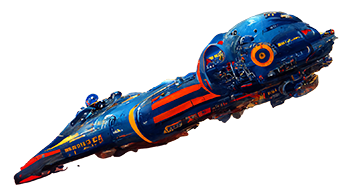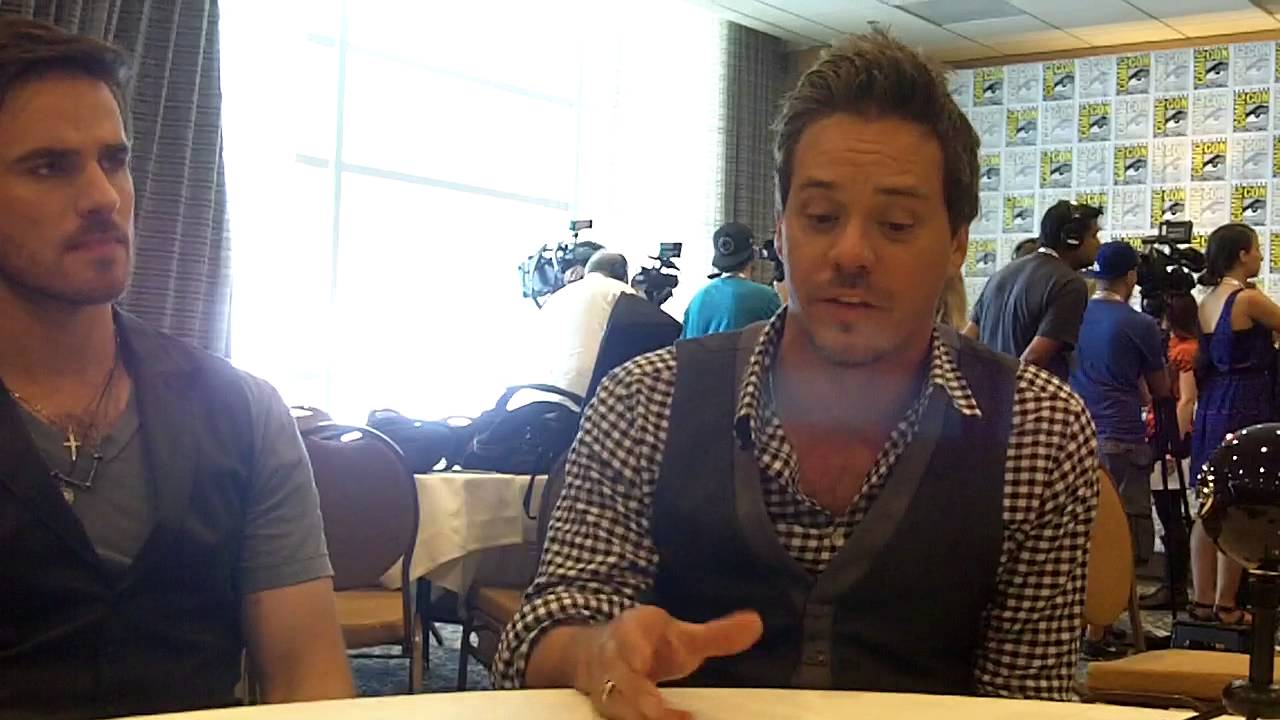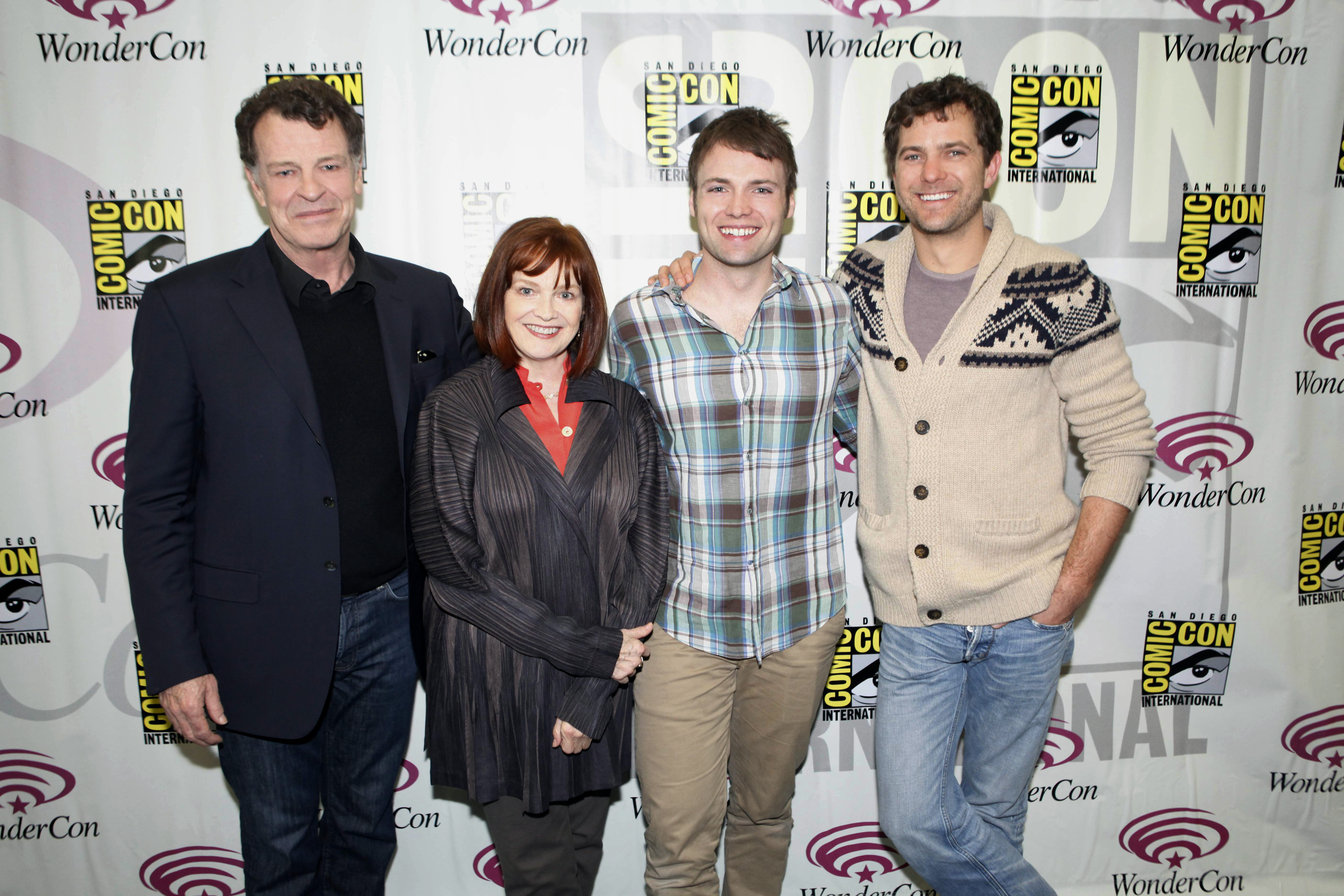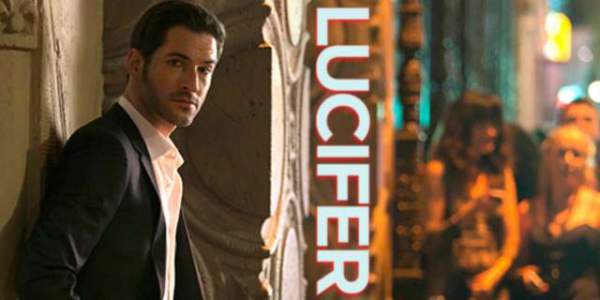Inside “The Cabinet of Dr. Caligari – Remix”

Daamen Krall

David Lee Fisher
Whedonopolis: I watched the movie a couple weeks ago, and let me tell you, I couldn’t take my eyes off it. It was hypnotic! And then, at the end, there was a lot of, “What? Huh? No, wait… Cos… but that… Hey!”
Daamen Krall: Well, then we achieved our purpose!
David Lee Fisher: That was the idea! Good, it works!
W: And so I watched it again right away!
DLF: Oh, you did? Great! (laughs)
W: When did you decide you wanted to become an actor and, in your case, David, be involved in the movies?
DK: I believe I was in high school. They were doing a play, and I didn’t think about auditioning for it, but a girl that I liked very much said, “Oh, come on! We need a guy to do this,” and of course I said, “I don’t think so.” But anyway, I went and read for the director, and he put me in the play, and the play went into competition, and I won the Best Actor award, so I thought, “Hey! Here’s something I can do!
W: Very cool! What play was it?
DK: I think the title was “The Little Man Who Wasn’t There,” like an early form of “Mork & Mindy.”
W: David, what about you?
DLF: I was really young when I decided I wanted to make movies. My mother used to drive me and drop me off at the theater, and I’d just stay in and watch movies pretty much all day. When I was a kid I was intrigued by them, but the movie industry (I lived in Northern California, so I wasn’t in L.A.) just seemed like something you couldn’t really get into. I remember that the really defining moment came when I was about 10, maybe a little bit older… maybe 14, with “Tron,” that Disney movie? In “Tron” there were obviously a lot of computer graphics that nobody really understood, and when I saw that for the first time, I didn’t really understand what I was seeing the first time, but I had an epiphany that led me to say, “OK, this is really what I want to do. I want to make movies with computers.” My dad ran the computer division at NASA, in North Bay, so I always liked computers as well because I grew up with them, and “Tron” was computers and movies, and that was kind of the moment. So I went into videogames, and worked at SEGA for a while, and then had my own videogame company, because to me it was a natural progression. “If I can do videogames, then maybe I can move on to movies.” That’s basically how I started.
W: What was your first project when you decided, “OK, so I’m gonna leave the videogames alone, and I’m gonna try to do this movie”?
DLF: It was kind of a grey project, a hybrid between the two for a videogame that I wrote myself. Basically, in the old days, there wasn’t a lot of 3-D games. You’d do animated cut scenes, and my cut scenes would basically turn into a mini-featurette that was almost 40 minutes long. I built a blue stage in a warehouse in Campbell, in Northern California, and shot live actors and composited them into this new world, like “Caligari” is, and I picked up a couple of awards for that, back in the ‘90s. So my first foray into movies was like a movie in a game, and then I put it out as a kind of showpiece to show what I can do. Then I came to Los Angeles, did a short film called “Life 2.0,” that I put up as unofficial selection for Sugarstreet, and it was #11 out of the top 10 that go to Sundance. So if I’d won…
W: That was still very good, since it was the first thing you ever did… rather remarkable!
DLF: Yeah! And then the next thing—there’s a festival in L.A. called “Instant Films,” which is basically you show up on Thursday, you’re given a script, you pick the actors out of a hat, and 24 hours later you show your movie. Once again, I employed green screen, which I don’t think anybody had done yet, and I won Best Director, Best Picture and Best Cinematography for that, and pretty much after that I went into “Caligari.”
W: Daamen, what was your first professional experience?
DK: My first professional experience after college – I have a Master’s degree in Theater- was working in a dinner theater, actually, in Omaha, Nebraska. That was my first job.
W: How did you decide to remake the movie, and not only that, but remake it with speaking parts while still using the original backgrounds?
DLF: Well, I’ve been saying this at conventions and interviews- what I really wanted to do was remix the movie, not remake it. It’s like when you do a cover of a good song, and because it’s an independent movie, there wasn’t the money available to rebuild all the sets. Now I wanted to put dialogue in it, because there isn’t any point in making a silent new version of a silent movie anyway, but the story was so good, I just thought, “It only needs a bit of fleshing out,” even though it’s a little crazy. I didn’t want to have a bunch of people gesticulating for five minutes, and then have a big card that said, “Don’t talk to me like that!” So I figured, “Well, if they’re talking, they can explain what’s going on, what’s their relationship and all that.” The green screen thing came about because, like I said, there wasn’t any money to build all new sets, and speaking from my remix idea, I wanted to use the original sets because they were perfect. So it was a question of both money and wanting to pay homage to the original.
W: Cool! How much of a challenge was it for you to do this movie when nothing’s there, and actors are supposed to react to or interact with a thing they can’t actually see?
DK: At first it was a little disconcerting, of course, because there’s nothing you can use as reference, except for the other actor and that’s why they were so important, and thank goodness we had such wonderful actors to work with, like Doug Jones, for example, who I was with most of the time, a marvelous actor, and I was able to gauge myself from what he was giving back to me, and what I was giving back to him, I’d imagine.
DLF: It was a bit difficult for them the first day; and then it was over. For me, it was not difficult at all, because I had such great actors. My difficulty came later, and it was a technical one, not one to do with performance. I had to make sure that they all fit into the original scene, so I had plates coming out from the computer onto a big screen TV, and then fed into a camera, so we could line everybody up. We’d put marks on the floor on green tape that said, “Here’s a wall. Here’s a door.” So they had an idea where they were. But, in a way, I think the whole process actually helped them, because there was nothing to interact with except the other actors, so they had to sell it with themselves and that benefited me. At first blush, it looks like it could have been really difficult, but in a way it became
an interesting exercise technically, because it helped them with their choices.
W: Daamen, how did you become involved with the project of “The Cabinet of Dr. Caligari”?
DK: That’s interesting. I saw the breakdown, the notice that they were casting it on the computer, actually, and I looked at it and knew “The Cabinet of Dr. Caligari” very well because I’d studied it in different classes I’d taken in college especially about German expressionism, so I thought, “Oh, how wonderful!” When I saw they were casting Dr. Caligari himself, I thought, “Wow, I’m old enough to play that now!” So I submitted my picture and résumé, the casting director called me, I read for them, I got a callback and they cast me.

Daamen Krall as Dr. Caligari
(Picture courtesy of David Lee Fisher)
W: How was it acting with Doug Jones when he basically had just very few lines?
DK: Yes, very few, but he had a lot of emotion going on, and a lot of acting is reacting, and the work that I would do with him was incredible, because he was there all the time.
W: David, did you go after Doug Jones specifically for the part of Cesare, or did he come through the casting process?
DLF: I didn’t go after him specifically. We had a casting call, and it was an odd casting because Cesare, the character Doug plays, doesn’t have any lines; he only has the one line in the whole movie, and then the rest of his performance is physicality. So for everybody else, they’d come in and read a page, and he was at a disadvantage there. We had to do the casting based on how they looked and how well they acted the part. We’d seen probably about 20 Cesares, maybe more, and Doug came in, and he came in already in that character… I remember this sort of long lead up to the line, where he was sort of waking up until he delivered the line, and he was so far above and beyond anybody else that I basically said (just like I had with a few other people in the movie), “I just can’t do this unless he plays this part.” Other people were just campy, or didn’t look right or whatever; Doug was just perfect. And here’s another thing, he came in in character and left in character, so I had this impression that Doug was this sort of shy, dour guy, and once I met him, he’s the funniest, nicest guy in the whole world, but I just had no idea of that at the time. I remember I ran after him and gave him an original copy and said, “You have to watch this,” because in my mind I’d cast him, already. Once we’d started talking, I recognized him from “Batman” and all that, so that’s how Doug Jones became involved.

Doug Jones as Cesare
(Picture courtesy of David Lee Fisher.)
W: Again I use the word “hypnotic” when I talk about Doug’s performance, because I just couldn’t take my eyes off him, and you were just creepy! You creeped me out, which is, I hope, what you were going for…
DK: (laughs) Absolutely!
W: What’s your next project? What’s coming up for you?
DK: Right now, I’m working with David on his next film, “Nevermore – The Last Tale of Edgar Allan Poe.”
W: Are you playing Poe?
DK: No, I’m a little too old for that…
W: Aw!
DK: But there’s a nice part for me.
DLF: Yes, the new project is a far, far larger scale than “Caligari.” As Daamen said, it’s called “Nevermore – The Last Tale of Edgar Allan Poe,” and it’s a movie based on Poe’s tales, but it’s not a biopic of Edgar Allan Poe; it’s a fantasy-horror movie, like the old Vincent Price flicks. It’s the same camera style, and Poe is actually a character in it; he’s like a character in one of his tails. He plays a villain, he’s not even the hero, and the movie revolves around the main character’s relationship to Poe and this woman from one of his tales, and it tightly weaves through many of his most popular stories in a clever way, so we move through those. It’s a very interesting thing; we’re taking the tapestry, the look of the old movies, but updating that as well, so it’ll have the space, the colors, and it’ll be like an homage to the old Vincent Price movies.
W: So, unlike “Caligari,” it’ll be in color.
DLF: Yes!
W: Green screen?
DLF: This is a hybrid; this is almost like the last “Star Wars” was shot. There’ll be a lot of real set pieces and a lot of digital extensions. So, for example, if we shoot outside, the sky will then be digital; if we shoot inside, there may be a staircase and nothing else, so we’ll fill that in later on. It’ll have a lot of old school horror, classic Victorian feel.
W: In addition to Daamen Krall, who else is in the movie?
DLF: Doug Jones is in the movie!
W: Is he, now?
DLF: Yes, he’ll play several characters in the movie, one of which will be a surprise and a delight to people who like Poe. He plays a very famous character out of a very famous story. Other than that, we have a lot of interest from some pretty well known actors, and we’re starting casting soon.
W: Okay. When do you plan to get the cameras rolling?
DLF: We’re hoping to roll November 1st. We might take the whole crew over to Eastern Europe, to Bulgaria or Romania, because we need that look and it does look different there, and we should be done… it should take about a year, a year and a half to finish, because “Caligari” we shot in nine days, and it took almost a year in post. This shoot is much longer, so it’ll probably take about a month or two, and then another year in post. For “Caligari,” it was just me and him (refers to Josiah Holmes Howison, Visual Effects Supervisor, also in the room at the time of the interview but working on a project), but we’re gonna have about 10-15 computer artists working on this. It’s a much, much larger scale and it’s also an original story; it incorporates Poe’s films, but it’s not a retelling of any of them. It’s a brand new story that uses a lot of Poe’s tales in it.
W: Well, make sure to keep us posted so we can keep people updated.
DLF: Definitely! I can certainly do that.
W: Cool! We got to the end of the interview, and “The Job” always has the questionnaire created by Bernard Pivot, which we see in “Inside the Actor’s Studio.” Are you guys ready?
DK: Sure.
DLF: Sure! Yeah… Lay them on me. I don’t wear boxers or briefs, they’re kind of the long ones? (laughs)
W: That’s really not one of the questions we ask…
DLF: It’s not? Oh, okay.
W: Here we go – what’s your favorite word?
DK: Luscious.
DLF: Imagination.
W: What’s your least favorite word?
DK: Ugly.
DLF: Mediocrity.
W: What’s your favorite sound?
DK: Music.
DLF: Water.
W: What’s your least favorite sound?
DK: A crash.
DLF: These are hard, because I think about them too much…
W: If it’s any consolation, Doug went through these too and he took a long time as well.
DLF: Okay… Vacuum cleaners. I just hate them! My mother used to tell me when she was gonna vacuum the house, so I could leave.
W: (praying) Dear Lord, please don’t let this go into the gutter. Thank you. What turns you on?
DK: A good meal.
DLF: Computers.
W: Thank you! (laughs all around) It’s just that every time I ask this, people go diving into the gutter, and I’m like, “There are more things in life, you know?”
DK: Of all the pleasures in life…
W: What turns you off?
DK: Bad news. Like, if someone’s hurt, or someone’s gone, just bad news.
DLF: Crowds.
W: What’s your favorite curse word?
DK: Shit.
DLF: Oh, that’s a good one, because I have a few favorites of those… I like crap, even though it’s not a curse word, because you can use it in front of your mom and it still says the same thing.
W: What profession other than yours would you ever like to attempt?
DK: Out of show business? I’d probably work somewhere in the travel business.
DLF: I’d be a baker.
W: Interesting! What profession other than yours would you never like to attempt?
DK: Manual labor.
W: We’re getting a lot of that. David, what about you?
DLF: Oh, boy… Since my last name is “Fisher” and I’ve never caught a fish in my life, I’m gonna go with fisherman.
W: And finally, if Heaven exists, what would you like to hear God say when you arrive at the pearly gates?
DK: “Welcome! Come on in, and sit down for a while, for the rest of eternity!”
DLF: “You have a lot of work to do here.” I don’t wanna sit around and play harps all day.
W: Thanks very much for talking with us.
“The Cabinet of Dr. Caligari” is out on DVD now, and you can order it here. Members of the cast and the director will be signing copies of the DVD at Dark Delicacies this Saturday at 2:00PM. For more information, click here.










